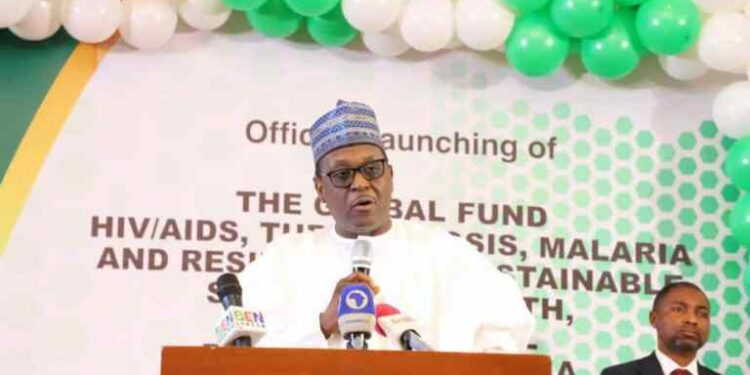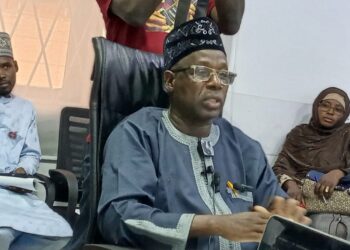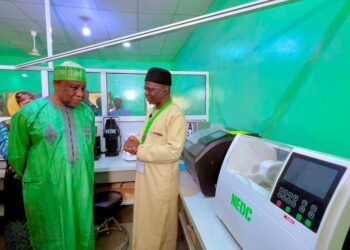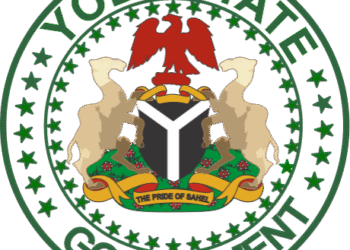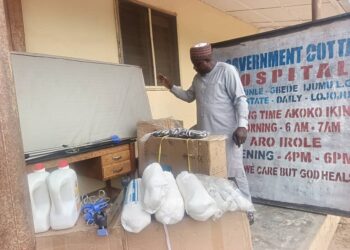The Global Fund has donated $933 million to Nigeria to address the impact of HIV/AIDS, Tuberculosis (TB), and malaria, while also enhancing preparedness for future pandemics.
The Coordinating Minister of Health and Social Welfare, Prof. Ali Pate, who launched the grant in Abuja, said it was premised on President Tinubu’s vision for the health sector.
Prof. Pate noted that this vision is centred on four pillars: collaboration, improved population health outcomes, unlocking the health value chain, and health security.
‘’Much of the investment that you’ve been doing in terms of laboratory infrastructure, within the public health workforce, surveillance systems to do with the infectious disease that you’re dealing with, are also very relevant for other infections.
“So, in essence, what we’re here to launch is really a cross cutting effort that touches on all the key pillars of President Tinubu’s Universal Health Sector Renewal Investment Initiative,’’ he said.
The Minister urged states to ensure the prudent use of the fund and appealed to the Global Fund to consider patronising locally manufactured health commodities such as diagnostic kits.
‘’As we move forward, it requires the states to own this effort as well as different entities as the non-governmental, non-state actors, so we move forward, and I call on the Global Fund to gradually increase the level of trust and confidence and use and alignment with national systems at the federal and sub-national levels and for the states to earn that trust so that the resources that are granted will not end up being misused because there’s zero tolerance for misuse of funds meant to help the poorest and vulnerable population,’’ Prof. Pate stressed.
The Minister of State for Health, Dr. Tunji Aluasa, explained that the $933 million grant, dedicated to combating HIV/AIDS, Tuberculosis, and Malaria, would cover the period from January 1, 2024, to December 31, 2026.
The first Vice Chair, Country Coordinating Mechanism (CCM-Nigeria), Ayo Ipinmoye noted that Nigeria had been a beneficiary of the global fund since 2022, with $4.6 billion received thus far.
Mr Ipinmoye highlighted the objectives of the GC7 to include prioritising investments, prevention, and gender equality interventions
‘’Now to the G7 the purpose of it we are here today, the objectives are for, to enhance effectiveness and performance of health systems, to prioritize investments, to focus on prevention, human rights, and gender equality interventions, to consider the country’s most vulnerable with emphasis on relevant national disease strategic plans, national health sector, and program reviews,’’ he noted.
Dr. Patrick Dakum, Chief Executive Officer of Institute of Human Virology Nigeria (IHVN) on behalf of the Principal Recipients of the Global Fund GC7 project assured of adhering to the guidelines outlined for the grant.
‘’Our driving force is that at the end of the grant period, December 30, 2026, the country, the Country Coordinating Mechanism and the Global Fund will be proud of our efforts.
“Our goal is to provide renewed hope for Nigeria, and we will work assiduously to deliver the required services to Nigerians,’’ he said.
The Chairman of the House Committee on HIV/AIDS, Tuberculosis, and Malaria, Amobi Ogah, expressed confidence in achieving all targets set for the fight against TB, HIV/AIDS, and malaria by 2030.
Dr. Neo Zekeng, the UNAIDS Country Director, commended Nigeria’s successful utilization of previous grants, leading to the approval of the new one.
Dr. Zekeng identified gaps in response, especially concerning children, and called for targeted interventions to accelerate inclusion, innovation, and the development of a new model to address TB, HIV/AIDS, and Malaria.
(Radio Nigeria /vitalnewsngr.com)


